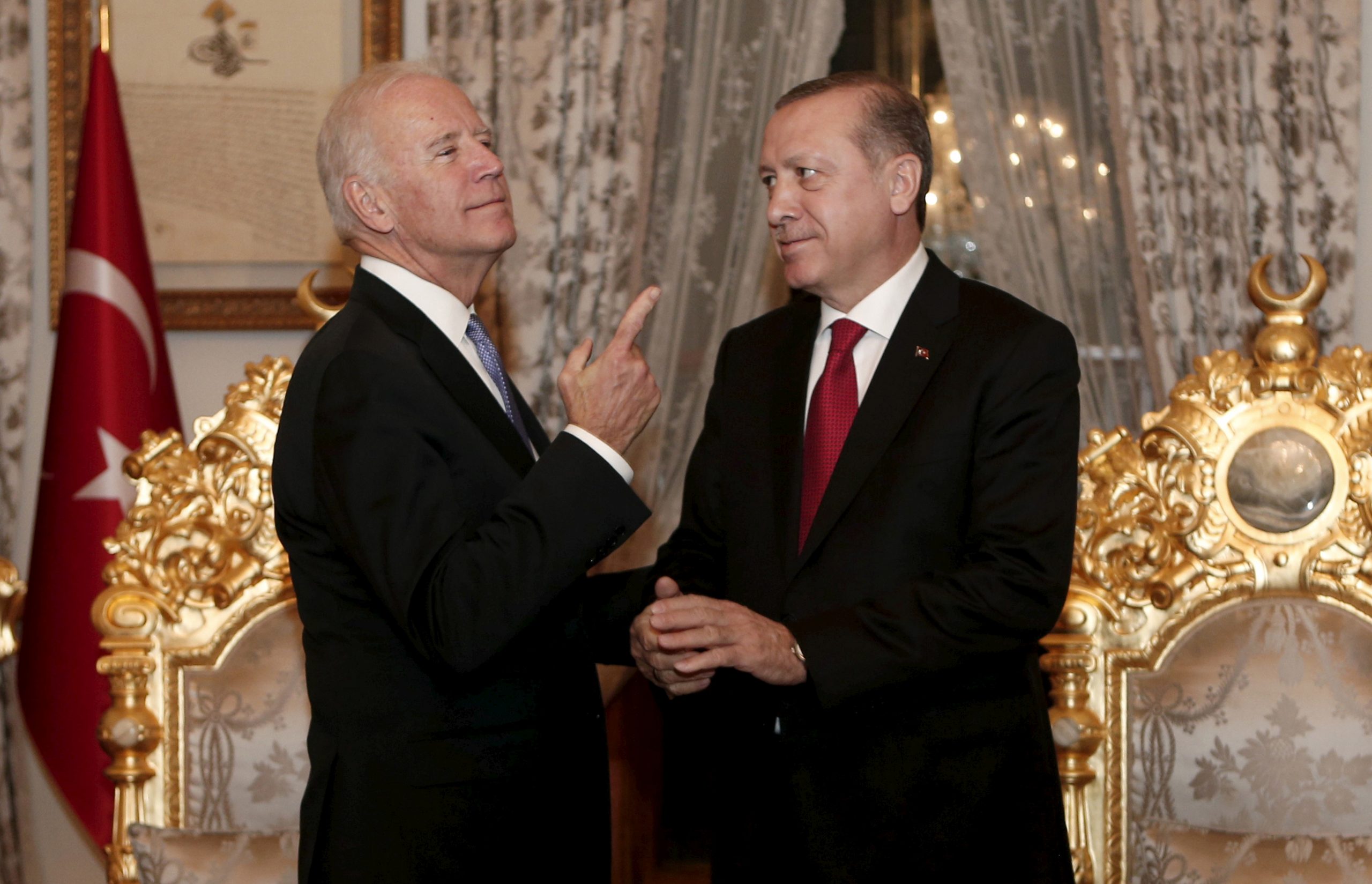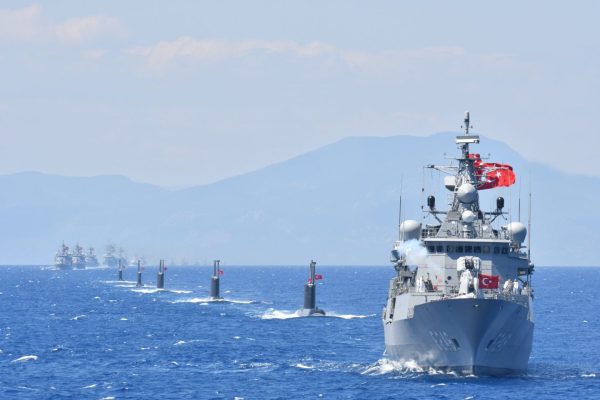
“The United States welcomes Turkey’s efforts to facilitate a just diplomatic solution to end the war through negotiation.” This is underlined, among other things, by the joint statement issued in Ankara, following the visit of Under Secretary of State for Political Affairs Victoria Nuland, referring to the Turkish mediation, which includes the proposal to hold a summit between Vladimir Putin and Volodymyr. Zelensky.
Washington, therefore, not only did not disapprove of or threaten Ankara with new sanctions because of its categorical refusal to impose sanctions on Moscow for invading Ukraine, but seems ready to take another step: to reconsider the data that led to the rift between the two traditional allies and NATO partners, on the occasion of the purchase by Turkey of the Russian S-400 system.
Erdogan is one thing, and Turkey is another
“The United States and Turkey look forward to a ministerial meeting within the framework of the Strategic Mechanism in 2022,” the statement said. This is an important step in the process of gradual restoration of bilateral relations, which was decided during the meeting of the two presidents, Joe Biden and Tayyip Erdogan, last October.
This confirms in practice the fact that the US – even if it does not particularly like Erdogan and the AKP – attaches great importance to Turkey’s geostrategic position and the role it can play in the wider region and is not willing to leave it to the Putin’s embrace.
Europe is also thinking about it
The same is true in the case of the European Union, despite Ankara’s objections to the content of the “Strategic Compass”. The case of Turkey’s accession to it may have been virtually ruled out as a scenario (at least for the foreseeable future), but both the refugee issue and its strong influence in the Muslim world and the Balkans make it a valuable – if not irreplaceable – partner.
Indicative of this are the remarks of the Konrad Adenauer Stiftung in a recent confidential report to Bundestag MPs: “Its position makes Turkey a key player in the South Caucasus, the Black Sea and the Middle East and is of vital geostrategic importance to Europe, which means that Germany can not ignore the views and its interests in security matters “.
Latest News

Airbnb: Greece’s Short-Term Rentals Dip in March Amid Easter Shift
Data from analytics firm AirDNA shows that average occupancy for short-term rentals dropped to 45% in March, down from 49% the same month last year.

Easter Week in Greece: Holy Friday in Orthodoxy Today
At the Vespers service on Friday evening the image of Christ is removed from the Cross and wrapped in a white cloth

Meloni and Trump Meet in Washington, Vow to Strengthen Western Ties
“I am 100% sure there will be no problems reaching a deal on tariffs with the EU—none whatsoever,” Trump stressed.

ECB Cuts Interest Rates by 25 Basis Points in Expected Move
The ECB’s Governing Council opted to lower the deposit facility rate—the benchmark for signaling monetary policy direction—citing an updated assessment of inflation prospects, the dynamics of underlying inflation, and the strength of monetary policy transmission.

Current Account Deficit Fell by €573.2ml Feb. 2025: BoG
The improvement of Greece’s current account was mainly attributed to a more robust balance of goods and, to a lesser extent, an improved primary income account

Hellenic Food Authority Issues Food Safety Tips for Easter
Food safety tips on how to make sure your lamb has been properly inspected and your eggs stay fresh.

Greek Kiwifruit Exports Smash 200,000-Ton Mark, Setting New Record
According to data by the Association of Greek Fruit, Vegetable and Juice Exporters, Incofruit Hellas, between September 1, 2024, and April 17, 2025, kiwifruit exports increased by 14.2%.

Easter Tourism Boom: Greece Sees 18.3% Surge in Hotel Bookings
Among foreign markets, Israel has emerged as the biggest growth driver, with hotel bookings more than doubling—up 178.5% year-on-year.

Greece to Launch Fast-Track Tender for Offshore Hydrocarbon Exploration
Last week, Papastavrou signed the acceptance of interest for the two Cretan blocks, while similar decisions regarding the two Ionian Sea blocks were signed by his predecessor

American-Hellenic Chamber of Commerce to Open Washington D.C. Branch
AmCham's new office aims aims to deepen U.S.-Greece economic ties and promote investment and innovation between the two countries








![Πλημμύρες: Σημειώθηκαν σε επίπεδα ρεκόρ στην Ευρώπη το 2024 [γράφημα]](https://www.ot.gr/wp-content/uploads/2025/04/FLOOD_HUNGRY-90x90.jpg)




![Airbnb: Πτωτικά κινήθηκε η ζήτηση τον Μάρτιο – Τι δείχνουν τα στοιχεία [γράφημα]](https://www.ot.gr/wp-content/uploads/2024/07/airbnb-gba8e58468_1280-1-90x90.jpg)












![ΙΟΒΕ: Πώς το δημογραφικό υπονομεύει την ανάπτυξη – Τι συμβαίνει στις ελληνικές περιφέρειες [γραφήματα]](https://www.ot.gr/wp-content/uploads/2025/04/dimografiko-600x375.jpg)












![Airbnb: Πτωτικά κινήθηκε η ζήτηση τον Μάρτιο – Τι δείχνουν τα στοιχεία [γράφημα]](https://www.ot.gr/wp-content/uploads/2024/07/airbnb-gba8e58468_1280-1-600x500.jpg)


 Αριθμός Πιστοποίησης
Αριθμός Πιστοποίησης